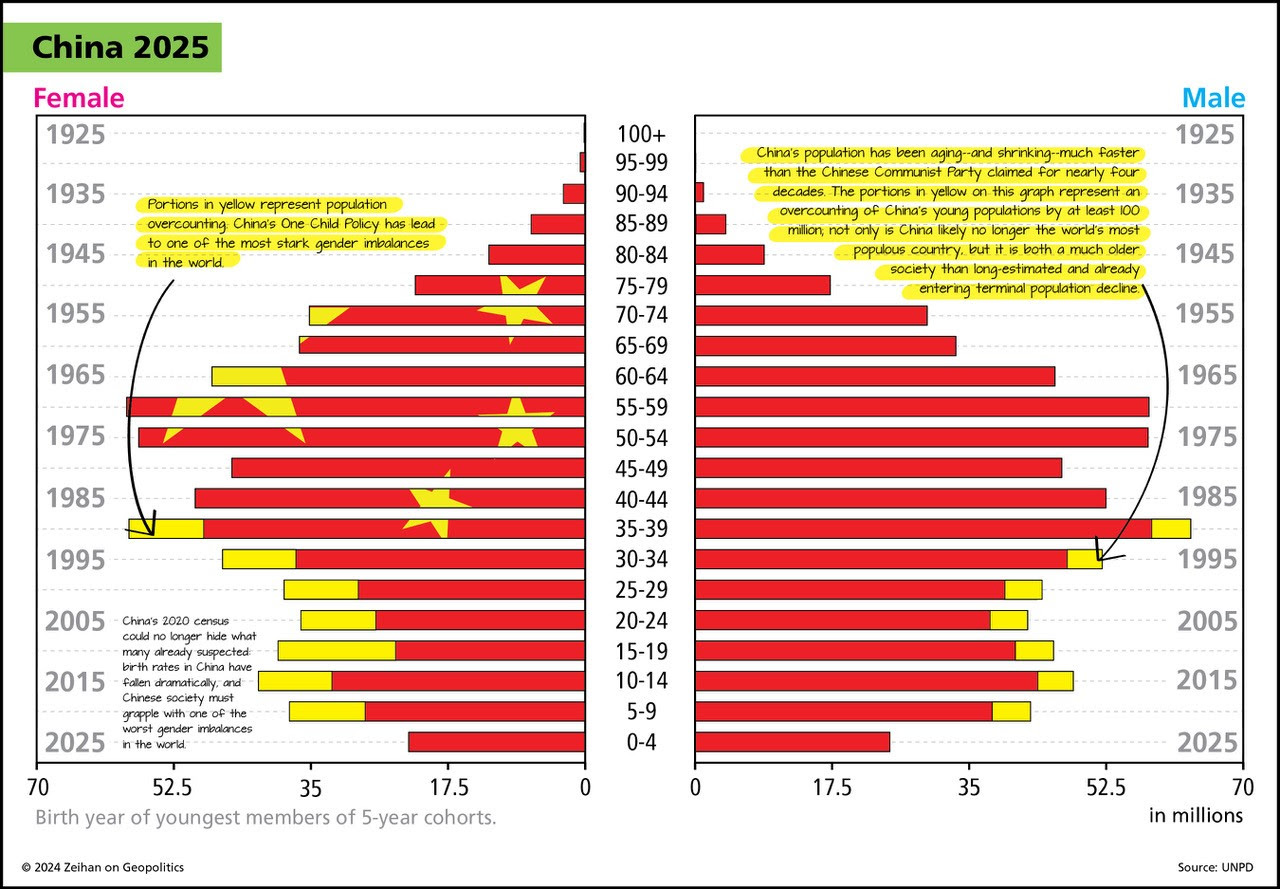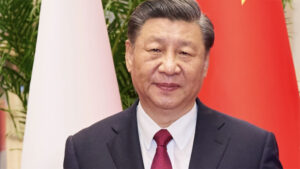*This video was recorded before Peter’s backpacking trip in mid-July.
Lesson of the day: if the Chinese government starts censoring a topic, it’s probably time to start looking into that. Today, we’ll be examining China’s economy heading into ‘garbage time’.
For the non-athletes that follow me, garbage time is a sports term that refers to the final minutes of a play when there is no chance for the losing team to recover, yet play must continue. So, if we apply that to the Chinese economy, it would suggest that China has crossed the point of no return.
If you trust the data coming out of China, the economy is stagnant and the demographic picture is grim. If you take your Chinese data with a grain of salt, the economy and demography of China are in a unrecoverable nose dive. So, to say that China is ‘laying flat’ and in ‘garbage time’ is no exaggeration.
If there was anything that might help China hold on, it would be strong international trade. Unfortunately, many countries are stepping away from deals with China and removing that last sliver of hope for the Chinese.

Here at Zeihan On Geopolitics we select a single charity to sponsor. We have two criteria:
First, we look across the world and use our skill sets to identify where the needs are most acute. Second, we look for an institution with preexisting networks for both materials gathering and aid distribution. That way we know every cent of our donation is not simply going directly to where help is needed most, but our donations serve as a force multiplier for a system already in existence. Then we give what we can.
Today, our chosen charity is a group called Medshare, which provides emergency medical services to communities in need, with a very heavy emphasis on locations facing acute crises. Medshare operates right in the thick of it. Until future notice, every cent we earn from every book we sell in every format through every retailer is going to Medshare’s Ukraine fund.
And then there’s you.
Our newsletters and videologues are not only free, they will always be free. We also will never share your contact information with anyone. All we ask is that if you find one of our releases in any way useful, that you make a donation to Medshare. Over one third of Ukraine’s pre-war population has either been forced from their homes, kidnapped and shipped to Russia, or is trying to survive in occupied lands. This is our way to help who we can. Please, join us.
Transcript
Hey everybody. Peter Zeihan here, coming to you from Lost Valley in Colorado, just above Denver. Today we’re going to talk about a bit of Chinese censorship and the general downward spiral the Chinese find themselves in. I keep an eye on what the Chinese are banning because it gives you an idea of what Xi Jinping and the CCP in China are nervous about.
A couple of new terms have popped up on the ban list that I think are worth discussing because they put a few things into context. The first term is “garbage time.” For those of you who are sports enthusiasts, you might have heard of this term. It refers to the final minutes of a game when one team is so far ahead that it’s impossible for the underdog to catch up. They still have to play out the rest of the game before officially losing. In geopolitical terms, it’s a concept that emerged in the 2000s and 1990s, referring to the period after the Soviet invasion of Afghanistan in 1979 when it became clear that the system was broken and it was just a matter of time before the inevitable end.
The Chinese government doesn’t like this term because it implies that their system is fundamentally broken and that it’s just a waiting game until the end.
The second term is “laying flat.” This idea is that things are so broken and hard work will get you nowhere in a dysfunctional system, so you might as well do the least amount of work possible because there’s no reward for anything else. Again, this term is problematic for the Chinese government because it reflects widespread disillusionment.
These terms are indicative of the economic situation in China. The Chinese recently released new data, showing annual growth once again coming in under 5%. This has been the trend since 2019. Most experts believe that China’s government overestimated their GDP growth by about five percentage points since the 2010s, suggesting that for the past five to six years, China really hasn’t grown much at all. This is reminiscent of Japanese-style stagnation but with an economy that hasn’t advanced as far.
Recent demographic data from China indicates that they’ve lost another 8 million people under age five. The data now publicly admits that there are roughly the same number of people aged 50 to 70 as there are aged 0 to 25. This is significant because, ideally, the younger age group should be two to three times as large as the older group.
Independent demographers argue that China has overstated its population by 100 to 250 million people, particularly under age 40. This suggests that the 0 to 25 age group may be overstated by at least 80 million people, possibly closer to 150 or even 200 million. Most consumption in an economy is driven by people under age 40, who are the ones buying homes and raising children. If this next generation doesn’t exist in significant numbers, China can never achieve consumption-led growth again.
This makes China increasingly dependent on international trade, which is in the process of cutting China out of the global system. This started with Donald Trump in the United States and has now expanded with recent sanctions on things like electric vehicles to Europe, Turkey, India, Indonesia, and Brazil. The effort is going global. So, the last best hope the Chinese had for recovery is now over six years old, and it looks like there won’t be another one. People are beginning to notice.








